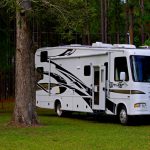Ever wondered how long the average Joe or Jane keeps their trusty RV before passing it on to the next road warrior? Well, you’re not alone! It’s a question that tickles the minds of many in the RV community, and we’re here to spill the beans with some insider knowledge and a sprinkle of road-tested wisdom.
Table of Contents
- Quick Answer
- Quick Tips and Facts
- The Journey Through RV Ownership: A Historical Roadmap
- What Drives the RV Lifespan? Factors That Fuel the Fire
- The Mileage Milestone: Understanding the Average RV Tenure
- Holding On or Letting Go: The Emotional GPS of RV Ownership
- The Trade-In Trail: Why RVers Shift Gears and Swap Rigs
- The RV Fountain of Youth: Secrets to Sustaining Your Sanctuary
- FAQ
- Conclusion
- Recommended Links
- Reference Links
Quick Answer
In the fast-paced world of RV living, the length of time an owner holds onto their mobile abode can be as varied as the destinations they explore. On average, the tenure ranges from 5 to 7 years, but this is just the tip of the iceberg. Factors like lifestyle changes, maintenance, and the siren call of newer models play significant roles in this nomadic narrative. But don’t just take our word for it; let’s dive deeper into the great RV odyssey! 🗺️
👉 Shop RV essentials on: RVShare | Outdoorsy | Camping World | Amazon | Walmart | eBay
Quick Tips and Facts
- Average Ownership Span: 5-7 years, but it’s not set in stone.
- Maintenance Matters: Regular upkeep can extend your RV’s life.
- Upgrade Itch: New tech and features can tempt you to trade up.
- Size Shifts: Life changes may lead to upsizing or downsizing your rig.
- Emotional Attachment: Some RVs become a part of the family.
The Journey Through RV Ownership: A Historical Roadmap
The RV lifestyle has evolved from the early days of simple campers to today’s luxurious land yachts. The history of RV ownership is a colorful tapestry, woven with the threads of technological advancements and shifting societal trends. Let’s take a trip down memory lane and see how the past has paved the way for modern RV enthusiasts.
What Drives the RV Lifespan? Factors That Fuel the Fire
Several factors rev the engine of RV ownership duration. From the initial quality of the rig to the inevitable wear and tear of the open road, every mile counts. And let’s not forget the impact of personal circumstances; whether it’s a growing family or a newfound love for minimalism, life has a way of steering the wheel.
The Mileage Milestone: Understanding the Average RV Tenure
While the odometer of ownership varies, we’ve found that most RVers park their pride and joy after about a decade of adventures. However, the type of RV plays a role too. For instance, Class A motorhomes often enjoy a longer stay with their owners compared to their travel trailer counterparts. Why? It’s all about the investment and the dream of the open road.
Holding On or Letting Go: The Emotional GPS of RV Ownership
Sometimes, the heart rules over the head. RVs are more than just vehicles; they’re vessels of cherished memories. Customizations and renovations can turn a standard model into a personal paradise, making the thought of selling as painful as leaving home. But when the road calls for change, even the most sentimental RVer might heed the call.
The Trade-In Trail: Why RVers Shift Gears and Swap Rigs
Upgrading to the latest model, downsizing for simplicity, or trading in due to maintenance woes – the reasons for changing RVs are as diverse as the rigs themselves. It’s a journey dictated by personal needs, technological temptations, and sometimes, the desire for a fresh start.
The RV Fountain of Youth: Secrets to Sustaining Your Sanctuary
Preserving the value and vitality of your RV is an art form. It involves regular maintenance, strategic storage, and keeping up with the Joneses of RV tech. But it’s not just about the mechanics; it’s about creating a sustainable lifestyle that keeps your RV rolling for years to come.
FAQ
What is the average age of an RV owner?
The average age of RV owners is a moving target, but it’s often pegged in the 50+ range. However, don’t be fooled – the RV life is attracting a younger crowd faster than a clearance sale at a camping store!
What is the life expectancy of an RV?
An RV’s lifespan can stretch from 10 to 20 years, but like a fine wine, it gets better with care. Treat it right, and it’ll be your loyal companion for countless sunsets and starry nights.
What is the most popular RV length?
Size matters, and the most popular RV length is typically between 21 to 35 feet. It’s the sweet spot for comfort and maneuverability, perfect for both weekend getaways and epic cross-country treks.
What is the average age of full-time RVers?
Full-time RVers are breaking the mold, with many in their 30s and 40s embracing the lifestyle. It’s not just a retirement plan; it’s a life choice for the brave and the bold.
Conclusion
Whether you’re a weekend warrior or a full-time nomad, the duration of RV ownership is a personal journey. It’s a mix of practical decisions, emotional ties, and the call of the wild. Whatever your path, cherish the ride, and remember: every journey has its time.
Recommended Links
For those itching to dive deeper into the RV lifestyle, check out these links for more insights and gear to enhance your journey:
- 👉 Shop RV essentials on: RVShare | Outdoorsy | Camping World | Amazon | Walmart | eBay
Reference Links
For the skeptics and the fact-checkers, here are some reputable sources to back up our road-tested truths:
- RV Demographics and Statistics
- Average RV Ownership Length Explained
- Full-Time RVing Insights
- Luxury RVs for the High Rollers
And remember, folks, the road goes on forever, and the RV tales never end! Keep those wheels turning, and maybe we’ll see you out there on the highway of life. Happy trails! 🚐✨



